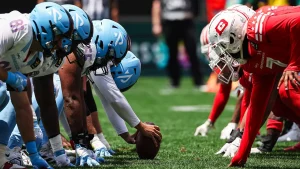Thomas King’s Identity Crisis: A Reflection on Heritage, Writing, and Self-Discovery
Thomas King, the celebrated Canadian author whose literary career has been built around powerful storytelling about Indigenous experiences, recently faced a profound personal crisis that shook his very sense of self. King described feeling “ripped in half” upon discovering through DNA testing that he has no Indigenous ancestry, despite having identified with and written extensively about Indigenous communities for decades. This revelation has prompted complex questions about identity, authenticity, and the responsibilities of storytelling.
For King, whose works like “The Inconvenient Indian,” “Green Grass, Running Water,” and numerous other novels and short stories have been hailed for their insightful portrayal of Indigenous experiences, this discovery represents more than just personal confusion. It challenges the foundation upon which he built not only his career but his understanding of himself. King had long believed he had Cherokee ancestry through his father’s side, an identity that informed his perspective and gave him what he felt was a connection to the Indigenous communities whose stories he told. The emotional language he used—feeling “ripped in half”—speaks to the profound disorientation that comes when one’s self-conception is suddenly undermined.
The situation raises important questions about the complex nature of identity in our increasingly interconnected world. Many people grow up with family stories about their heritage, only to discover through modern genetic testing that these narratives don’t align with biological reality. King’s experience highlights how identity is constructed not just through biology but through lived experience, community connections, and personal narrative. Having dedicated his professional life to amplifying Indigenous voices and perspectives, King now finds himself in the uncomfortable position of potentially being viewed as an outsider to the very communities whose experiences he’s portrayed in his writing.
This revelation also speaks to larger cultural conversations about voice, representation, and who has the right to tell certain stories. King’s work has been praised for its authenticity and insight, qualities that many readers and critics assumed came partly from his own Indigenous heritage. While his talent as a storyteller remains unchanged, the context in which his work is read may shift. In a literary landscape increasingly concerned with questions of cultural appropriation and authentic representation, King’s situation illuminates the complex relationship between an author’s identity and their creative output. It asks us to consider whether personal heritage is a prerequisite for writing about particular cultural experiences, or if empathy, research, and respectful engagement might be sufficient.
For readers who have found meaning in King’s work, this revelation invites reflection rather than rejection. His books have educated generations about Indigenous histories, challenges, and perspectives, contributing significantly to public understanding regardless of his personal genetics. The value of this contribution exists independently of his ancestry, though the framing of his authority to speak on these issues may evolve. This situation demonstrates how art and advocacy can sometimes transcend questions of personal identity, while simultaneously acknowledging that claims to specific cultural identities carry responsibilities and implications that cannot be ignored.
Ultimately, King’s experience reminds us that human identity is rarely simple or static. It evolves through our relationships, experiences, and the stories we tell about ourselves and others. While DNA may provide one kind of truth, it cannot capture the full complexity of how we come to understand ourselves in relation to culture, community, and history. As King navigates this personal crossroads, both he and his readers are presented with an opportunity to engage with nuanced questions about authenticity, belonging, and the ethical dimensions of storytelling—questions that, ironically, have always been at the heart of his most powerful writing.










